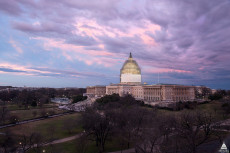Exascale Hearing Testimony in Congress Highlights CS Research Accomplishments
January 29, 2015
Contact: Jon Bashor, 510-486-5849, jbashor@lbl.gov
On January 28, the Energy Subcommittee of the House of Representatives Committee on Science, Space and Technology held a hearing on Supercomputing and American Technology Leadership. Among those giving testimony was Roscoe Giles, professor of computer science at Boston University and chairman of the Advanced Scientific Computing Advisory Committee, which reports to DOE’s Office of Science.
In his testimony, Giles cited a number of scientific accomplishments made possible by supercomputers. His top three recent examples were all led by Berkeley Lab researchers. They include a new method developed under the DEGAS project to sequence the complex wheat genome, the first-ever confirmation, supported by NERSC and ESnet, that a Wolf-Rayet star died in a violent explosion known as a Type IIb supernova, and the finding that Antarctica’s Pine Island Glacier’s fast retreat has reached a point of no return, based on simulations using BISICLES.
Giles also cited several other Berkeley Lab-supported accomplishments, including NERSC simulations for converting carbon dioxide into fuel and simulations using NERSC systems to develop thinner, more efficient solar cells. »Download Giles’ full testimony (PDF | 333KB).
About Computing Sciences at Berkeley Lab
High performance computing plays a critical role in scientific discovery. Researchers increasingly rely on advances in computer science, mathematics, computational science, data science, and large-scale computing and networking to increase our understanding of ourselves, our planet, and our universe. Berkeley Lab’s Computing Sciences Area researches, develops, and deploys new foundations, tools, and technologies to meet these needs and to advance research across a broad range of scientific disciplines.







 Instagram
Instagram YouTube
YouTube